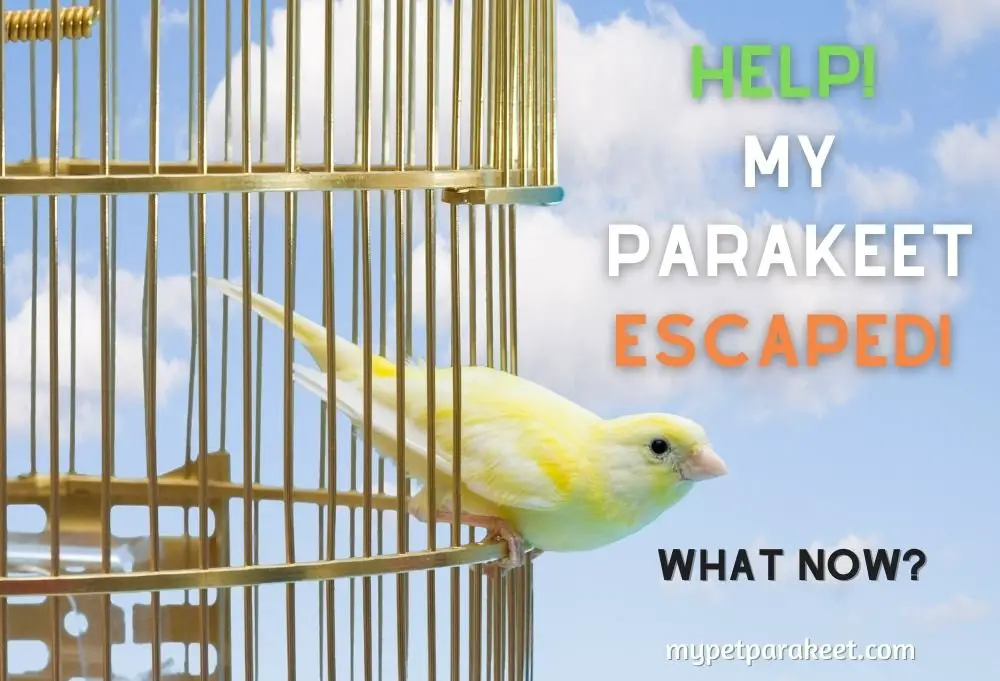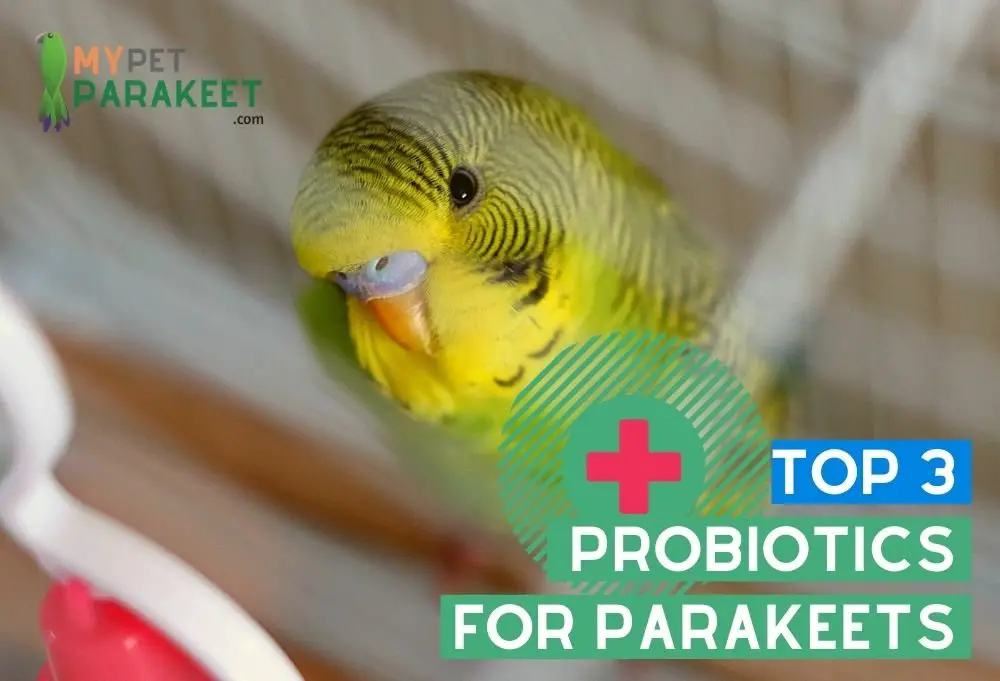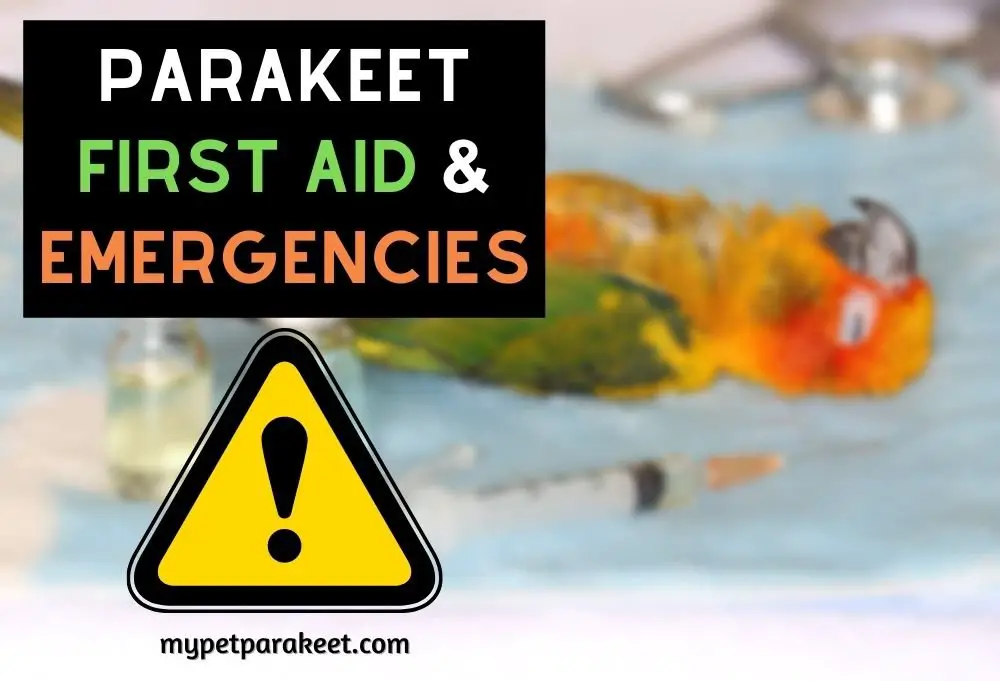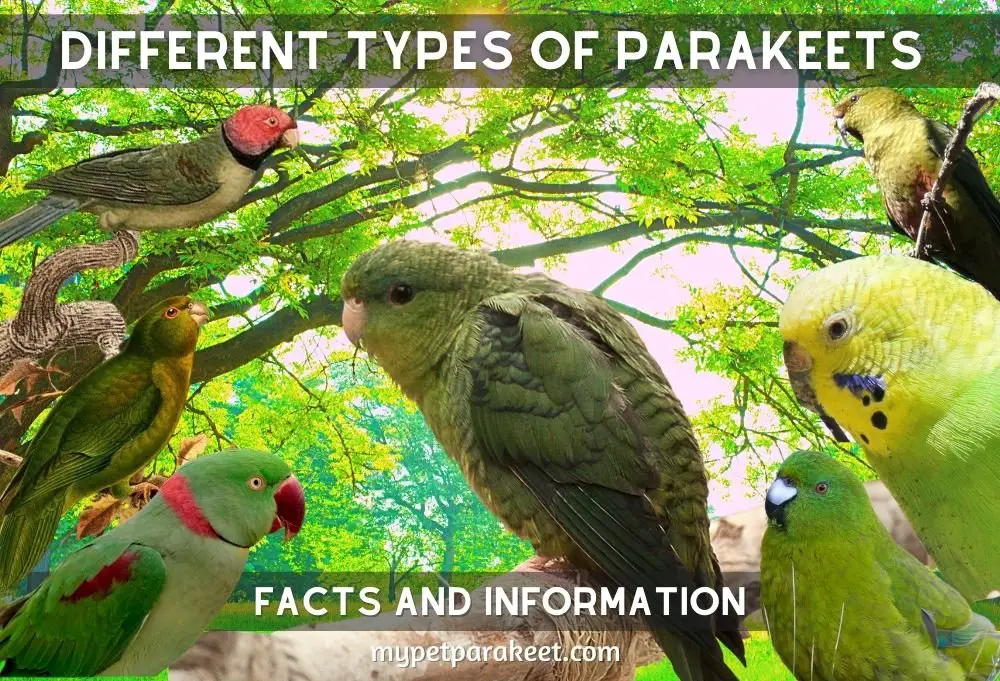Have you ever lost your parakeet?
You wake up in the morning, and you realize that your parakeet has escaped.
It can be an awful experience…
Birds are clever creatures, and they may try to find a way home, but it isn't always possible. If you are reading this, then chances are that your parakeet has escaped from his cage.
If you have found that parakeet, the first thing is to make sure he/she is healthy. If you still haven't found him/her, please read on to learn more.
How Parakeets Go Missing
Imagine yourself as a bird. You've been confined in your cage for so long, but one day you finally have the chance to escape and fly free!
Birds can fly! Just because your bird has never flown before or shown any interest in flying out of his cage doesn't mean that he won't be able to once you give him the opportunity. A fully flighted bird, one without a wing trim who is free and escaping through an open door or window isn't uncommon at all.
If you don't believe it's possible for this to happen, just check the lost and found ads in your local paper next week; I guarantee many birds will turn up on there, but few are ever reunited with their owners again!
Many parakeet owners underestimate this skill and do not take precautionary measures to safeguard their pets.

Safeguarding your parakeet can be as simple as clipping its wings. However, for moral concerns, some parakeet owners choose not to clip their parakeet's wings.
This decision is a personal choice, but one that clearly presents or prevents its own issues.
How To Prevent Your Parakeet From Becoming Lost.
– Regular trimming to keep the wings safe and healthy.
– When molting season comes around, it's important that both sets of feathers are trimmed evenly so they can grow nicely after moulting is done.
– Always make sure their cage door locks securely in case someone gets too close or knocks down something while playing with him/her outside on a busy day at home.
– Make sure there are no tears or holes anywhere near windows, as this could result in an escapee who isn't ready for what's out there yet!
– Last but not least, never go outside with your feathered friend perched atop one shoulder. As cool as this may look, it is not practical and could lead to much bigger problems.
Parakeets have been known for their curiosity, so it's only natural that they may want to explore new surroundings when given an opportunity.
Can Escaped Parakeets Survive?
The most pressing question for a concerned parakeet owner, “can my escaped parakeet survive?” There are many factors to consider when answering this question.
The Amount Of Time Your Escaped Parakeet Has Been Gone.
If your parakeet has been gone for less than a day, there is a good chance that it's still in the area and could return to its home. If he has been without food in this time, this is also good news as they can survive up to 48 hours without food.
The Weather Conditions Outside.
If it is cold or rainy, you may want to take steps today to find your parakeet before nightfall when temperatures drop below freezing, and the bird has no access to shelter.
The Parakeet's Personality And Skills At Finding Food On Its Own.
If your parakeet is a confident, well-fed parrot that has been gone for more than 24 hours without reappearing, then it may not be coming back as it could have found another place to live and its own food.
Predators In The Area.
If there are predatory birds in the area or local cats or foxes, your parakeet may not be so lucky.
Although it does have its natural instinct, it does not have the skills it would have in the wild to evade capture.
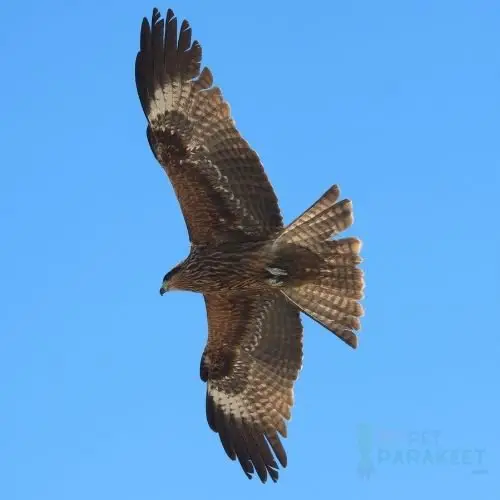
Parakeets in the wild are resourceful and clever, but parakeets that have adapted to living in a cage for life don't know how to survive on their own as easily. If you know where your parakeets like to forage, try there first before trying other areas.
The Strength Of The Parakeet's Ties With Its Owner And Home.
He may simply fly back home if he knows his way, as it is ingrained into their DNA and instinct to do so.
It's best to start looking for your parakeet right away. The good news is that parrots can live in the wild as long as 48 hours without food or water by finding nectar and tree sap and small bugs etc.
How Do You Catch An Escaped Parakeet?
If your parakeet escapes, despite your best efforts to keep it contained, providing your parakeet does not turn up on its own, you must act quickly to take steps that will increase the chances of finding your lost pet.
Here are some tips:
- In the event that your bird has escaped before your eyes, you should try to keep your pet insight. Record your bird's voice (in the event of an emergency just like this) and play it outside to lure your bird back home.
- Put its cage outside where it can see it and place some treats near its cage where it can see them; put food down close by so it doesn't think about going anywhere else but coming back inside.
- Birds are notoriously sensitive to the sounds of their own species. You can use that knowledge in your favor if you own another bird. Put that caged bird nearby and let it sing for you so your parakeet will come closer!
- If your bird has escaped, call your vet's office and local humane society for assistance with capturing the flightless pet (if you have trimmed its wings).
- Post fliers in your neighborhood describing your bird. Use social media and local hashtags and try offering a reward or compensation; be sure to include contact details.
Can A Parakeet Find Its Way Home?
Yes. As mentioned above, if your parakeet has a good relationship with you and your other parakeets or birds, if you have any, it may come back on its own.
Letting Your Bird Out Of Its Cage
I know I have to provide my bird with a safe environment, but what about when it's time for them to go outside?
It is important that you make sure all windows and doors are closed so your pet cannot escape.
Birds also like chewing on things that can be potentially dangerous; they may chew on electrical wiring or perch in bushes! Be careful of hot surfaces such as stoves, heaters, fireplaces – some birds will fly into these at great speeds by accident.
The most important thing, though: never let your bird out of its cage if you're not there watching over them because this could lead to disaster- imagine forgetting the door was open and returning home hours later only find an empty cage 🙁
Conclusion
As you can see, there are many things to consider when letting your parakeet out of its cage. Letting them roam around the house or even just going outside with them will help keep these birds healthy and happy. But in the event that it does escape, these measures might help you locate it.
It's hard to keep a parakeet caged up as they want nothing more than to explore the outside world. Parakeets can sometimes fly and find their way home on their own, but it may take some time for them to do so. If you notice your bird is missing, one of the first steps should be looking in places like under furniture or behind curtains where they might have landed after flying out an open door or window.
Likewise, if your pet bird has never escaped and you just want to take these precautionary measures, that is great!
I hope this blog post was helpful and you learned something new. If not, please let me know your thoughts in the comments below or on our Youtube Channel! Your feedback is appreciated.

